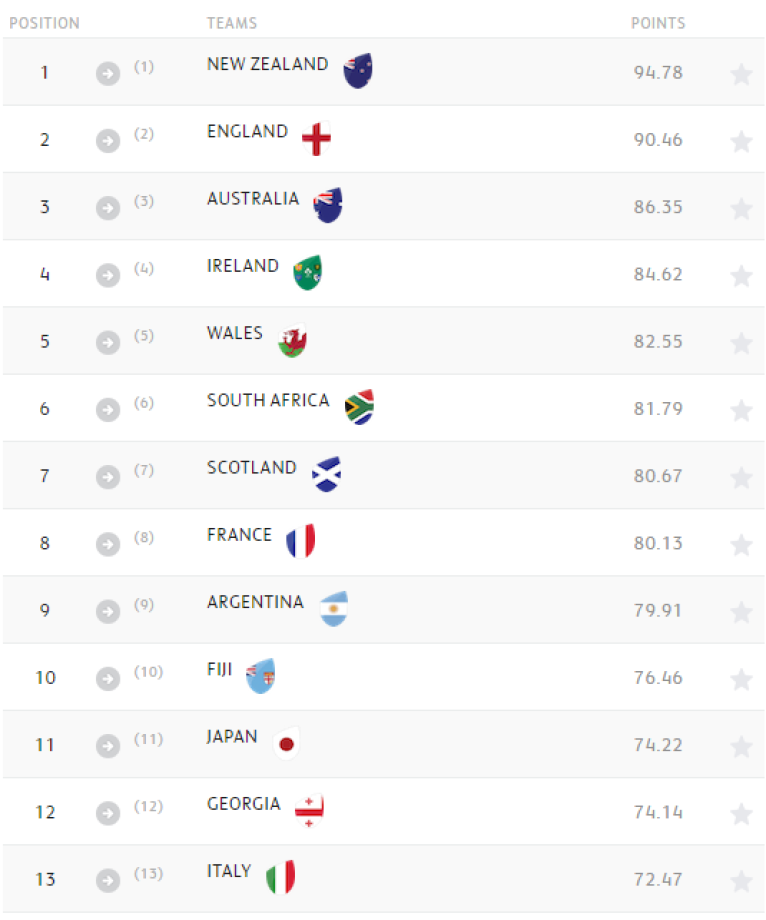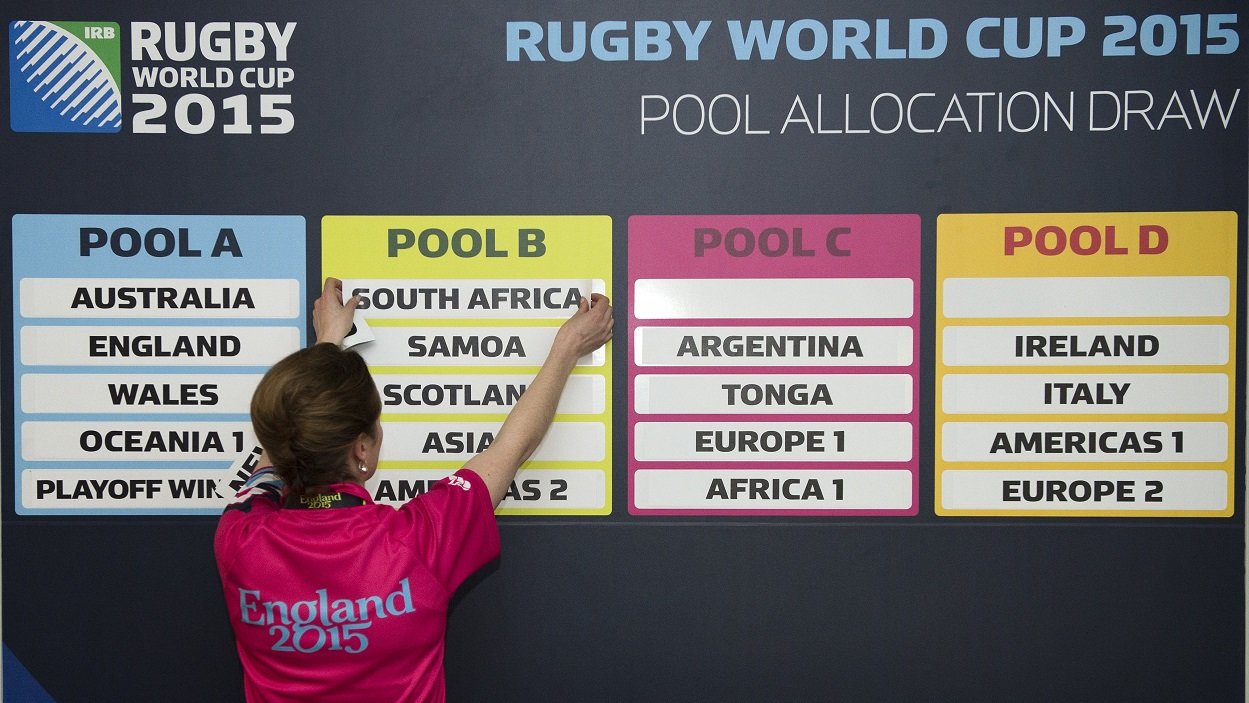This year’s Six Nations is shaping up to be the most competitive for many years – and its results will have a direct impact on the next Rugby World Cup, writes James Harrington.
There’s some extra spice to this year’s Six Nations – and it’s little to do with northern hemisphere rugby bragging rights, or the fact that this really could be the most competitive tournament for years … perhaps even, finally, living up to its self-promotional billing of ‘rugby’s greatest championship’.
What happens in the 15 matches over the next seven weeks in six European capitals will have direct and verifiable effects on events in a single room in Kyoto, Japan, on May 10.
That’s when the draw for the pool phase of the 2019 World Cup takes place.
It matters. Just ask England, Wales and Australia, who, thanks to the ranking system, were grouped together – disastrously for England – in the pool stage of the 2015 tournament.
The end-of-days make-up of that pool alone led to criticism of the timing of the draw, which was made in December 2012, a full two years and nine months before the tournament kicked off at Twickenham in September 2015.
[rugbypass-ad-banner id=”1485479950″]
This time, the draw is closer to the actual event, slicing a whole six months off the lag between draw and competition. But it is still a long way out, which World Rugby says is to allow time for logistics and ticketing.
As it stands, three of the four Rugby Championship sides plus Fiji could meet in the pool phase of Japan 2019. But it is very possible that the tournament could feature not one but two of those dreaded and cliched pools of death.
All the rugby talk at the end of 2016 – England and Ireland’s big year – was about how the gap between north and south, apparently a yawning chasm during the World Cup when the two semi finals featured the big four southern hemisphere nations, had closed.
Ireland claimed New Zealand’s scalp in Chicago in November, to add to victories over South Africa and Australia, while England’s 13-match winning run gained them more than 10 points in 12 months to leap six places and take an elephant bite out of the All Blacks‘ lead in World Rugby’s rankings.

Thanks to their top-three pool finishes in the 2015 World Cup, all the Six Nations and Rugby Championship sides, as well as Japan and Georgia, are in the draw. Fiji, currently 10th in the standings, have yet to qualify.
The 12 sides will be split into three groups of four based on World Rugby’s rankings on May 10. Using current standings, the 12 confirmed teams break down as follows:
- Band 1: New Zealand, England, Australia, Ireland
- Band 2: Wales, South Africa, Scotland, France
- Band 3: Argentina, Japan, Georgia, Italy
The eight remaining nations heading to Japan 2019 have yet to be decided from qualifying competitions across the world. They will make up bands 4 and 5 in Kyoto.
England would need a disastrous, lose-to-all-comers-by-a-lot Six Nations to fall out of the top band. Wales could displace Ireland, though realistically that is an outside bet. Its reasonably safe to say that Band 1 is all-but finalised.
Band 1 sides will be separated in the pool phase of the competition.
Bands 2 and 3, however, are more fluid. The difference between fifth-placed Wales and ninth-placed, band 3-listed Argentina is just 2.64 ranking points. It’s less than a point between seventh and ninth.
Wales and South Africa should be safe, leaving three teams – Scotland, France and Argentina – in the running for the last two places in the second rank of the World Cup draw.
The Pumas fate is out of their hands, but it is possible that they could move up the rankings, if Scotland or France have a bad Six Nations.
This matters. If, say, France drop down to band 3 as a result of a bad run in the next seven weeks, their 2019 World Cup could see them drawn in a pool with New Zealand and Argentina; England and South Africa; or Australia and Wales; with the possibility that their pool could also feature a pure rugby nation such as Fiji, currently ranked 10th in the world but yet to qualify, remember.
And don’t forget, the draw takes place more than two years ahead of the World Cup. There is plenty of time for nations to change their stars. Look at what Eddie Jones has done for England in the 15 months since the last tournament, or what Michael Cheika did for Australia in the run-up to the 2015 competition (never mind what has happened since).
There is plenty of time between now and September 20, 2019, when the World Cup in Japan kicks off at the Tokyo Stadium, for the world rugby landscape to change.

































